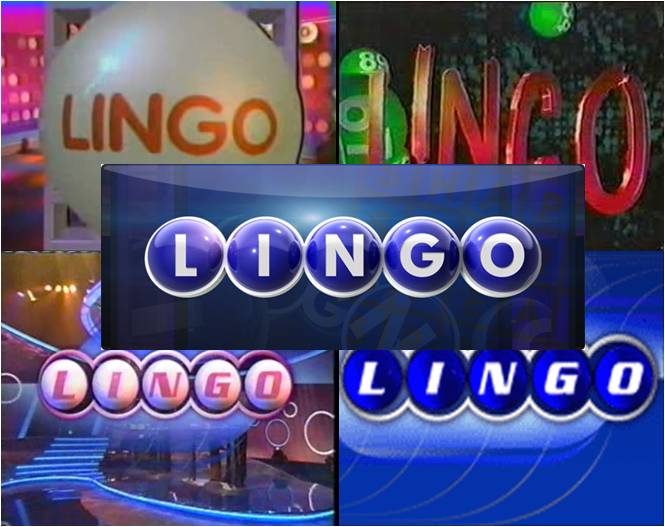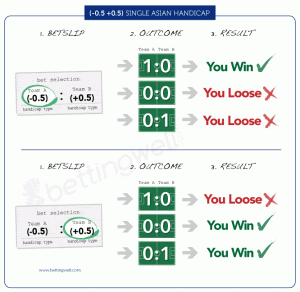Last Updated on December 11, 2020
New sports bettors usually come across a few of these terms and sometimes they can be a bit confusing. Here’s a list of the most common betting terms that you should understand before start betting.

Sports betting terms
Accumulator – This is similar to a parlay in that it involves a series of bets in one wager. Each of the bets must win in order for the wager to win. If one leg of an accumulator loses the wager loses.
Alternate Lines – All sportsbooks offer lines (point spreads) on sporting events. Some sportsbooks may offer different (or alternate) point spreads that pay different odds for the same game. These provide bettors more options to wager on certain games.
American Odds – American odds are displayed differently than the rest of the world. Moneyline odds are shown as + or – a number in the US. Outside of the US, the same odds might be presented with a decimal point or by a fraction. Example: Yankees +400 American odds would be 5.0 or 4/1. The bettor takes home the same amount of money if the wager wins.
Arbitrage – This betting strategy involves placing a wager on all possible outcomes of an event so that that there’s a guaranteed profit regardless of the winner. This is best done with moneyline or futures wagers in the US and will usually take place across multiple sportsbooks.
Asian Handicap – An alternative way to bet soccer where the better team is “handicapped” to be the favorite. This form of betting was started in Asia.
Backdoor Cover – This is a popular term for a team that covers a point spread late in a game. The team with the late cover may or may not affect the actual result of the game, just the wager.
Banker – A banker is a European wager similar to a round robin bet in the US. Different teams are placed in a “system bet” to make different “accumulator” (parlay) bets.
Bankroll – Total amount of money a bettor has to place wagers.
Beard – This is a person who places a wager for another person who wishes to remain unknown.
Betting Exchange – A betting platform where people wager against one another instead of betting against a sportsbook. The exchange operator takes a small percentage of winning wagers. This is often seen as the most efficient market for sports betting.
Betting Unit – A betting unit is the amount of a typical wager. Bettors may have different sized bankrolls and a unit is a way to share how much was bet without giving away a specific dollar amount. For example, a high roller might have a unit size of $10,000 per wager while a low roller has a unit size of $20 wager per wager.
Bonus – Sportsbooks offer a financial bonus to customers for a variety of reasons. A signup bonus is the most popular way to incentivize bettors to use a certain sportsbook.
Chalk – A term for the team that is the favorite in an event. This team or player is usually a big favorite. The chalk is the expected winner by a large margin.
Circle Game – A game is circled by a sportsbook because betting limits are lower than usual. This most often happens when there’s a questionable injury before a game. It can also happen if there’s potentially bad weather, a trade rumor, or the possibility of “load management” which might give a player a night off.
Opening Line – This is the first point spread available for a game.
Closing Line – This is simply where the point spread is when the game begins.
Closing Line Value – This term is used by bettors to measure the value of the line they wagered before the line that was the last available before a game begins.
Consensus – The general agreement about something. In sports betting consensus could be the most popular teams bet or line available for a game.
Contrarian – Betting against the trends of the mainstream popular opinions. Bettors usually place contrarian wagers when there is value on the opposite opinion.
Dead Heat – Another way to say that there is a tie in a finishing position. Sportsbooks have different rules on how to pay in the event of a tie or dead heat in an event.
Decimal Odds – This is a different way to present odds than Americans are used to. They’re sometimes called “European odds” since this is how odds are listed with European sportsbooks. The math is easier to figure out for most bettors than US moneyline odds. Decimal odds are derived from a simple calculation of the amount bet x odds.
Dime Line – This is a “10 cent” difference between the moneyline odds payout between the money laid on the favorite and the money paid by the underdog. For example, Vegas Golden Knights -125 vs. San Jose Sharks +115. The difference of 10 (dime line) is the traditional profit margin for sportsbooks.
Dog – Short for underdog. This is the team that is not expected to win.
Double Chance – This is a European sports betting term mostly used for soccer betting. A double chance wager allows the bettor two opportunities to win a bet. For example, a result in soccer can be a win, loss, or tie. A double chance bettor may combine two of the three results instead of just one. This gives the bettor twice the chance to win the wager.
Double Pop – A European way of saying that a bettor will bet twice the normal amount. In the US this is known more often as doubling up.
Early Cash Out – A way for bettors to settle a wager for a certain dollar amount before the event is over. This is a way to lock in a profit at a smaller value than the wager would ultimately pay.
Edge – The advantage a bettor has against the sportsbook (or vice versa).
Even Money – A wager that pays the same as was risked. An even-money sports bet is listed as +100 or -100 in a sportsbook. Unlike traditional -110 wager, there’s no vigorish paid to the sportsbook. A bettor risks $100 to win $100 instead of wagering $110 to win $100.
Exacta – Choosing horses to finish first and second in a race. This is sometimes, but rarely, offered for other competitive sports.
Exotic Wager – These are non-traditional sports bets. Exotic wagers aren’t point spread, moneyline, or futures bets on a certain event. This kind of wager is often listed as a prop bet in a sportsbook.
Expected Value – This is a calculation used by a bettor to determine whether a wager should win or lose over time. Positive expected value (EV) bets over time is a good way to become a winning sports bettor.
Exposure – The amount of money a sportsbook potentially could lose for a specific event. For example, sportsbooks might have a lot of exposure (money at risk) on one team winning a championship versus another.
First Half – A derivative bet that can be placed on a sport that has two halves. Football and basketball are the most popular sports to place a first half wager. In soccer, this might be called a “half time result.”
Fixed Odds – These are the odds that most sports bettors will experience. Once a wager is placed, the odds are set and don’t change. Horse bettors might experience a change in odds from parimutuel betting.
Flat Betting – Simply put, this is a betting system where all wagers are the same. A bettor doesn’t change the wager amount based on wins, losses, or any other outside opinion. The wager is usually a percentage of bankroll but could also be a fixed dollar amount.
Fractional Odds – Another kind of odds used mainly in Britain and Ireland. Odds are listed in fraction form (1/5) instead of as a moneyline (-500) that US sportsbooks use.
Grand Salami – A popular hockey bet which the wager is for the over/under on total number of goals scored by all teams in a day. Some sportsbooks may offer derivative versions for home, away, or periods of games during the day. Some sportsbooks may offer a similar bet for runs in Major League Baseball.
Handicapper – A person who analyzes sports events to predict the winning team or player.
Handle – The amount of money a sportsbook or sportsbooks take from wagers. This could be broken down by sport, region, casinos, and more.
Hedge – Hedging is a strategy used by sports bettors to either reduce the risk of or to guarantee a profit from a wager.
Home Field – This the field (court, rink, etc.) where one team plays its games.
Hook – Another way to say half of a point. For example, a team may be a 3.5 point underdog. That could be called “three and a hook.”
Implied Probability – The conversion from odds to probability
Joint Favorite – When there are two favorites for an event. This is mostly used in England.
Kelly Criterion – A popular bankroll management strategy for a bettor who seeks to limit losses while maximizing the amount won.
Layoff – When a bookmaker reduces the risk of losing wagers by placing a bet with a different sportsbook(s). This typically happens when there is lopsided wagering on one side of a game and the sportsbook or a bookie want to alleviate potential losses.
Listed Pitcher – This is a baseball bet that is active only if the pitcher listed as the starter throws the first pitch of a game. If the pitcher doesn’t matter a bettor can place a wager on “action.” The latter wager will happen regardless of who starts the game to the team bet on.
Live Betting – Placing a wager on a game or event while it’s taking place. This is also known as In Play wagering.
Lock – Another way of saying that a team or player will be an easy winner. (Note: This isn’t always the case, no matter what a sports prognosticator or tout says.)
Margin – This is a wager where a bettor selects a team to win or lose by a specific number of points regardless of the point spread. For example, the Oakland Raiders will defeat the Los Angeles Chargers by 10-14 points. The Raiders must win by 11, 12, or 13 points for a win. A victory by 10 or 14 points is a push.
Martingale System – A gambling system where bettors doubles the amount of a wager after losses. This system can be used for sports and other forms of gambling (i.e. blackjack).
Middle/Middling – Middling a sports bet is playing different sides of the same game. This gives a bettor multiple chances to win wagers on the same game.
Matched Bet – When a bettor uses free wagers from a sportsbook operator to increase potential profit. Matched betting is a popular technique employed in new legal US sports betting markets as promotional offers are available.
Nickel – Placing a $500 wager. A “Dime” is a $1,000 wager.
Novelty Bet – Placing a wager on a non-sports event with a sportsbook. For example, placing a wager on the Oscars in New Jersey. These kinds of wagers are more popular overseas.
Odds converter – A tool to convert between odds formats
Odds-on Favorite – When a team or person is heavily favored to win a game or event. They often have very low odds paying much less than the amount wagered.
Off the Board – When a sportsbook stops taking wagers on an event or participant they remove the game odds from the betting board. This often happens when a player is uncertain to participate because of an injury.
Public Betting Percentage – This is the percentage of wagers placed by the general betting public.
Puck Line – This is a point spread of sorts based on goals scored during a hockey game. The base puck line for a game is often plus or minus 1.5 since there are so few goals scored. Sportsbooks might offer an alternative puck line with more or fewer goals scored.
Puppy – Another way to say a team is an underdog in a game.
Push – When a point spread wager lands exactly on the line offered by the sportsbook. The bettor receives their money back if they push. For example, New England Patriots are favored by 14 points against the New York Jets. If they win by exactly 14 points, the wager pushes and the bettor gets their original wager back.
Player Props – A player prop bet is a wager on an individual player to do something during a game. For example, which player will score first in a football game?
Power Ranking – (AKA Power Rating) – Creating a ranking score for each team so that a bettor, handicapper, or sportsbook can create a point spread. Experienced handicappers use their point spreads to compare with a sportsbook in order to find the best bets available.
Reduced Juice – When a sportsbook lowers the vig on a game. For example, a sportsbook might offer -105 for a game instead of -110. This reduced juice will allow the potential for a bettor to take home more money if the wager wins.
Reverse Line Movement – When a line (or point spread) moves differently than the money wagered on the game or event.
ROI – ROI is an acronym for Return On Investment. The ROI of a sports wager can simply be calculated this way: (Gain from Investment – Cost of Investment) / Cost of Investment.
Round Robin – A wager that involves making multiple parlay bets at the same time.
Run Line – This is a point spread of sorts for baseball games based on the number of runs scored. The run line is typically plus or minus 1.5 since there are so few runs scored in baseball. Sportsbooks might offer an alternative run line with more or fewer runs scored.
Runner – A person who places wagers at a sportsbook for someone else. This person may also be known as a beard.
Sharp Money – Money wagered by sports bettors that a sportsbook operator respects. Sharp money often comes from large wagers placed by professional bettors. It should be noted that not all large wagers are considered Sharp.
Square – A casual and recreational sports bettor. This is someone betting on sports as a hobby. They’re not as respected by sportsbook operators as sharp or professional bettors.
Steam – This is when odds change because of the money wagered on a game or participant. Some bettors will “follow the money” or “chase steam” thinking the bettors know something they may not.
Straight Up – When a team wins or loses an event. The point spread isn’t involved with the winner or loser.
Take the Points – When a bettor places a wager on an underdog they are taking the points offered by the sportsbook.
Take the Price – Similar to taking the points. This is when a bettor takes the price on a game offered by the sportsbook. The bet is typically wagering a moneyline on the underdog.
Tissue Price – The initial odds offered by a sportsbook. This price is usually considered to be the fairest price on a wager.
TKO – Abbreviation for a Technical Knockout in boxing.
Totals – Totals are the numbers that bettors will choose the over or under on points (or runs, goals, etc,) scored.
Tout – A person who sells or gives away sports betting picks.
True Odds – True odds are the actual odds of an event happening. In sports betting this is the most accurate point spread or moneyline.
Wire-to-Wire – This is a wager that a team will lead at every quarter or for a specific number of quarters. Wire-to-wire bets are the most popular in basketball.
Betting terms around the world
This isn’t by any means a complete list of betting terms but it’s more than enough for new bettors. Betting terms may be slightly different in your country but since these are the most commonly used it’s likely they are the same across the majority of the world.
Let us know in the comments if there are different betting terms where you live.


